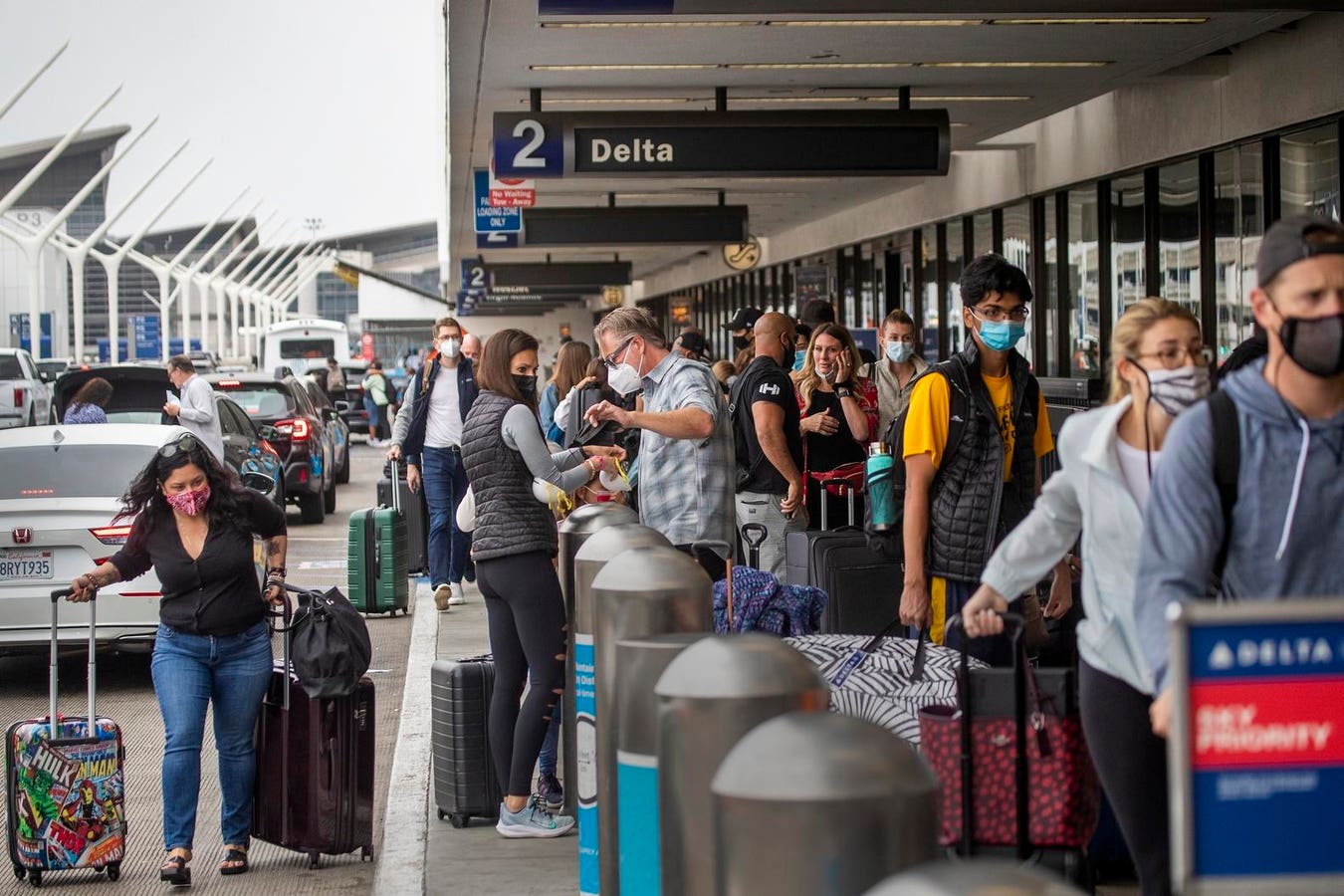Infection
Record Holiday Travel Expected. Will Higher Covid-19 Infections Follow?
With record travel expected over the Thanksgiving weekend, it seems as if life is returning to normal. Indeed, it’s easy to assume that the Covid-19 pandemic is fading away. But is that just wishful thinking? People still are being infected with SARS-CoV-2. Covid-19 still can lead to hospitalizations and death. New variants, such as BA.2.86 and the recently described JN.1, are troubling. And let’s not forget about influenza virus and RSV. So, should we remain worried about traveling for the holiday?
Let’s start by looking at the numbers.
According to the Centers for Disease Control and Prevention, there were 16,237 new Covid-19 hospitalizations in the United States during the week ending on November 11, 2023. During this same week, the CDC also reported 544 Covid-19 deaths. These numbers may seem large. And, of course, we need to remember that each number represents a person. Those 544 deaths represent 544 people who will not celebrate Thanksgiving. But are those numbers really large?
During the comparable week in 2022, the CDC reported 23,803 Covid-19 hospitalizations and 2,200 deaths. For the same week in 2021, the numbers were 37,474 and 7,159. Clearly, the absolute numbers are down significantly. The death to hospitalization ratio also has decreased significantly. During this week in 2021, the death to hospitalization ratio was 0.19. In other words, about 19% of the people hospitalized with Covid-19 died. In 2022, this rate dropped to roughly 9%. Now, the rate is under 3.5%. This comparison certainly isn’t perfect; myriad factors impact this measurement. But it does suggest that disease severity has decreased over the past years.
Does that mean that we have nothing to worry about?
The short answer to that question is no. We need to remain vigilante. In 2021, hospitalizations and deaths began increasing in late November and peaked in mid-January 2022. The same trend occurred between November 2022 and January 2023. We should expect that same pattern this winter. Hospitalizations and deaths probably will increase over the next two months. However, there is no immediate reason to believe that we will experience a surge comparable to the ones seen during the past two years.
Of course, a new variant could change the calculation entirely. We saw that happen when Omicron first emerged. Currently, two existing variants could be problematic. The BA.2.86 variant has caused concern since it was first identified in July, mainly because it differs significantly from its predecessor. And an offshoot of this variant, JN.1, also is being closely watched.
Unfortunately, the data about these variants are scant and inconclusive. In a paper recently published in Nature, researchers reported that BA.2.86 exhibits a strong affinity for its receptor on human cells, suggesting that this virus could be efficiently transmitted. These researchers also noted that BA.2.86 is not particularly resistant to existing antibodies, suggesting that so-called breakthrough infections may not be a major problem. We do know that the prevalence of BA.2.86 and JN.1 remain low.
What about other respiratory diseases?
Although Covid-19 remains the respiratory infectious disease of most concern, we shouldn’t forget about other respiratory infections. In its most recent weekly influenza report, the CDC reported that influenza cases are increasing in many parts of the U.S., as they typically do during this time of the year. The same is true for confirmed cases of RSV. The current levels of influenza and RSV infections, however, are not unusually high.
So, what can we conclude about holiday travel?
Following the Thanksgiving holiday, we almost certainly will see an increase in Covid-19 cases. The same is true for influenza and RSV. That’s the bad news. The good news is that basic mitigation strategies continue to be effective. Early evidence suggests that the latest Covid-19 vaccine provides some protection against current SARS-CoV-2 variants, including BA.2.86. Similarly, the influenza and RSV vaccines, while not perfect, do provide protection against these viruses. Masks work. And washing your hands always is a good idea. For people who are visiting at-risk friends and relatives, like the elderly, basic mitigation strategies like these can have a major impact.
In some respects, we are beginning to enter a post-pandemic era. But Covid-19 has not gone away. It probably won’t go away. Instead, we need to live smartly with it.

